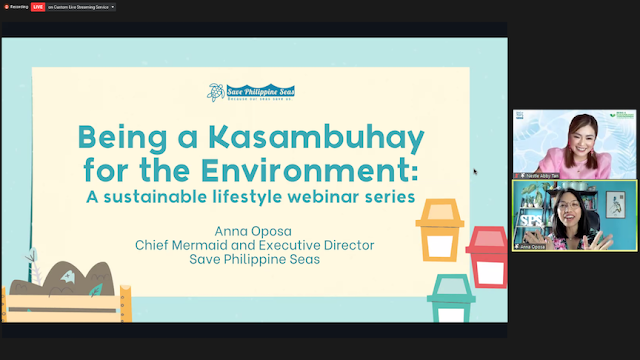Nestlé Philippines in partnership with the Department of Agribusiness Management and Entrepreneurship of the University of the Philippines-Los Baños (UPLB) has launched the Net Zero IdeaNation, a program where ABME10 (Foundations of Entrepreneurship) students were challenged to ideate innovative business concepts and solutions centered on Nestlé Philippines’ three net zero focus areas.
From 90 teams, 18 were selected to advance to the Net Zero IdeaNation Grand Finals that was held virtually on July 15, 2022. Before this, the finalists first underwent a mentoring session led by experts from Nestlé Philippines to help them further develop and polish their ideas for the pitching competition that took place from July 13 to 14.
In the end, three teams were named as the first set of IdeaNation Champions.
 |
The University of the Philippines Los Baños, together with Nestlé Philippines, celebrates youth innovation with its Net Zero IdeaNation competition
|
The Coffee Cubes concept of Team Cris’ Angels, composed of Aneka Abarrientos, Mahonri Alquisalas, Justine Faith Deverla, Angel Vi Manong, Ma. Jhoanna Zapico, clinched the 2nd runner-up award. Their product offers the beloved Filipino commodity, coffee, in a compact, travel-friendly form, which comes in 100% plastic-free packaging. This aims to uphold sustainable material packaging and reinforce coffee plantations in the Philippines.
BayanBiogas, a community-based generation of sustainable and alternative LPG from manure and food waste, bagged the 1st runner-up award. This concept by Crizza Rodolfo, John Jayme, Justine Zamora, Ashley Anyayahan, and Roque Banzon aims to fuel the community through more affordable and eco-friendly resources while promoting solid waste management.
Arianne De Goma, Neel Farson Angeles, Carmila Villaseran, Eljon Geroleo, Veronica Parreño, whose initials form their team name ACENV, emerged as the very first IdeaNation Champion. From the crisis of increasing gas prices experienced by the nation these days, their concept takes off by combining solar power and electric vehicles that delivery riders can utilize as a more sustainable and economical alternative to motors.
“This partnership with UPLB was an avenue to help mold future entrepreneurs who prioritize social responsibility, critical thinking, and innovation by providing them a platform to come up with solutions that help address climate change and first-hand industry knowledge through the mentoring sessions,” said Jose “Joey” Uy III, SVP and Head of Corporate Affairs of Nestlé Philippines. “When it comes to mitigating our environmental challenges, innovation is really important. We, as organizations and as individuals, must explore new ways to become more sustainable for the sake of our planet and the future generations.”
“It is fulfilling to witness our students get involved in our shared journey towards Net Zero through innovations that will be beneficial to the world. We are grateful that this partnership with Nestlé Philippines has brought them beyond the four walls of our classroom and beyond the screens of their devices,” said Prof. Chip de Guzman, from the UPLB DAME-College of Economics and Management.
Through initiatives like the Net Zero IdeaNation and Klimathon: Our Race Towards a Net Zero Reality, Nestlé Philippines continues to empower the youth in embracing their crucial role in ensuring a greener, more livable future in the planet they will inherit.





















